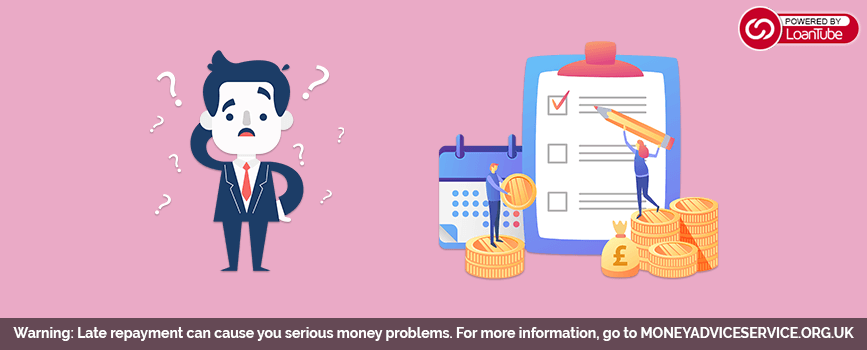With the rising cost of living and sluggish growth in wage – more and more Britons are turning towards instalment loans to manage the expenses of their everyday life. These loans are quite flexible in terms of the repayment period and are easily accessible. High street banks do not have any provision to offer a loan of a small amount. This bridge has been well covered by the new-age private lenders who typically have a loan range of £100 to £1,000. In addition to that, the process of applying for an Instalment Loan is comparatively easier, faster and convenient. However, there are some points that you must consider before applying for these loans. We have listed 5 top questions that you should ask yourself if you’re planning to borrow a loan for meeting your financial requirements.
What are the interest rates?
Borrowing money comes with a cost. The lenders charge an interest rate to the amount that you borrow for them. The interest rate depends on various factors such as:
- Your credit score
- The length of the loan
- The amount that you borrow
- Your credit history
Different loan providers offer different rates of interest. Therefore, it is always better to shop around to know what rates are available to you. You should compare the loans to find the one that suits you and your financial necessities. Instalment loans are a type of personal loan that doesn’t require you to find a co-signor or to use your home or any other valuable asset as collateral. Therefore, the rate of interest charged on these loans is comparatively higher. Whenever you are comparing the different options – make sure to shortlist at least 4-5 lenders as this will make it easier for you to choose the right one.
Is the loan affordable?
Calculate the amount that you have to pay towards your debt each month beforehand to know whether you can afford the loan. Prepare a list of all the expenses that are essential for you and then deduct that amount from your monthly income. The result will be the money that you will have after spending on the essentials. If you have enough money left to repay the debt and for your other expenses of the month – then you may consider borrowing a short-term loan. However, if you do not have enough money left to support your existence throughout the month, then you must consider other alternatives to borrow money rather than depending on a financial product. Try asking your friends and family for lending you a helping hand and reach an agreement with them to repay the debt.
For how long do you need it?
The financial market has expanded significantly since the economic meltdown of 2008. Various loan providers have different products that are customized according to the affordability of the customers. If you need a Loan for 6 Months you may apply for it. You do not have to choose the option of repaying it over the year. If your financial situation allows you to repay it within 6 months on time and in full – then go for it. Timely repayments have a huge impact on your credit profile as well. It will build and maintain your credit score and that means you will get offers for personal loans at low-interest rates in the future.
How is your credit score?
Higher the credit score, lower the interest rate. If you do not have a perfect credit history, lender may consider your profile to be a little risky. And as these loans are unsecured – the lender is already taking risk by lending you the money. They feel that you have more chances of defaulting on the loan and hence, the rate of interest they charge on the loan is comparatively higher. However, if you have a good credit score, and the lender finds that you have a good relationship with credit in the past, they will be more than happy to offer you money. And that is the reason they charge a lower rate of interest. If you do not have a spotless credit history and you still want to apply for a loan – do not expect to get a lower rate of interest. And ensure that you make timely repayments to protect your credit score from further damage.
Will there be any prepayment penalty?
A prepayment penalty is an additional fee that you have to pay if you decide to repay the loan before the agreed end date. Some of the lenders charge a prepayment penalty, also known as early repayment fee. However, some of the lenders do not charge you any additional fee for repaying the debt earlier than the date that was agreed beforehand. Lenders charge this fee to recover the interest amount that they might lose if you decide to make the payment earlier. Therefore, before signing on the dotted line, read the Terms & Conditions of the lender and ask questions that you might have to know what you’re entering into.
Final Takeaway
Affordability is the major element that you must take into consideration before deciding to borrow a loan. Whether you are borrowing a Homeowner Loan or a wedding loan – you should inspect all the elements that are involved in the process to be on the safe side. In addition to that, you should always deal with loan providers or brokers who are registered by the Financial Conduct Authority (FCA) to safeguard your interest. There is a high chance of being trapped in a potential scam and lose all your money if the lender or loan introducer is not registered by the financial watchdog. Do not rush to make any decision. Consider other alternatives before making your final decision.
To apply for a 12 Month Loan with us, Click Here.

